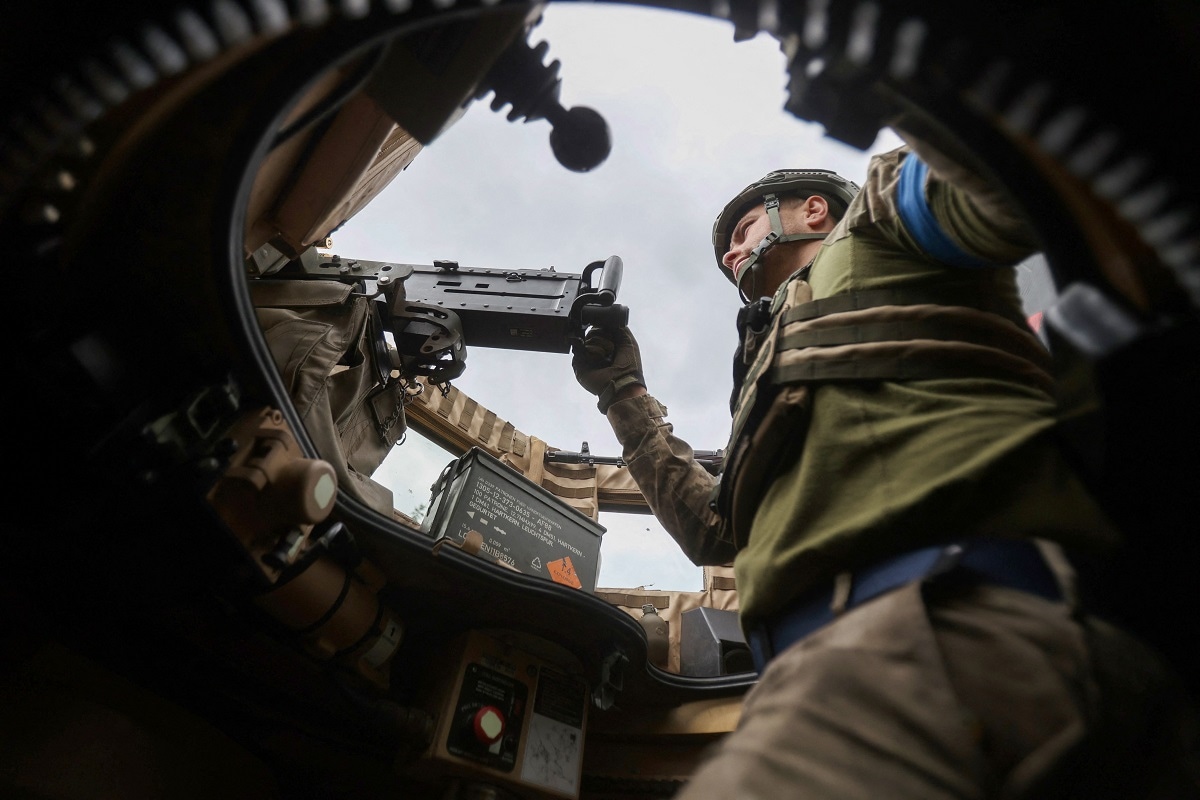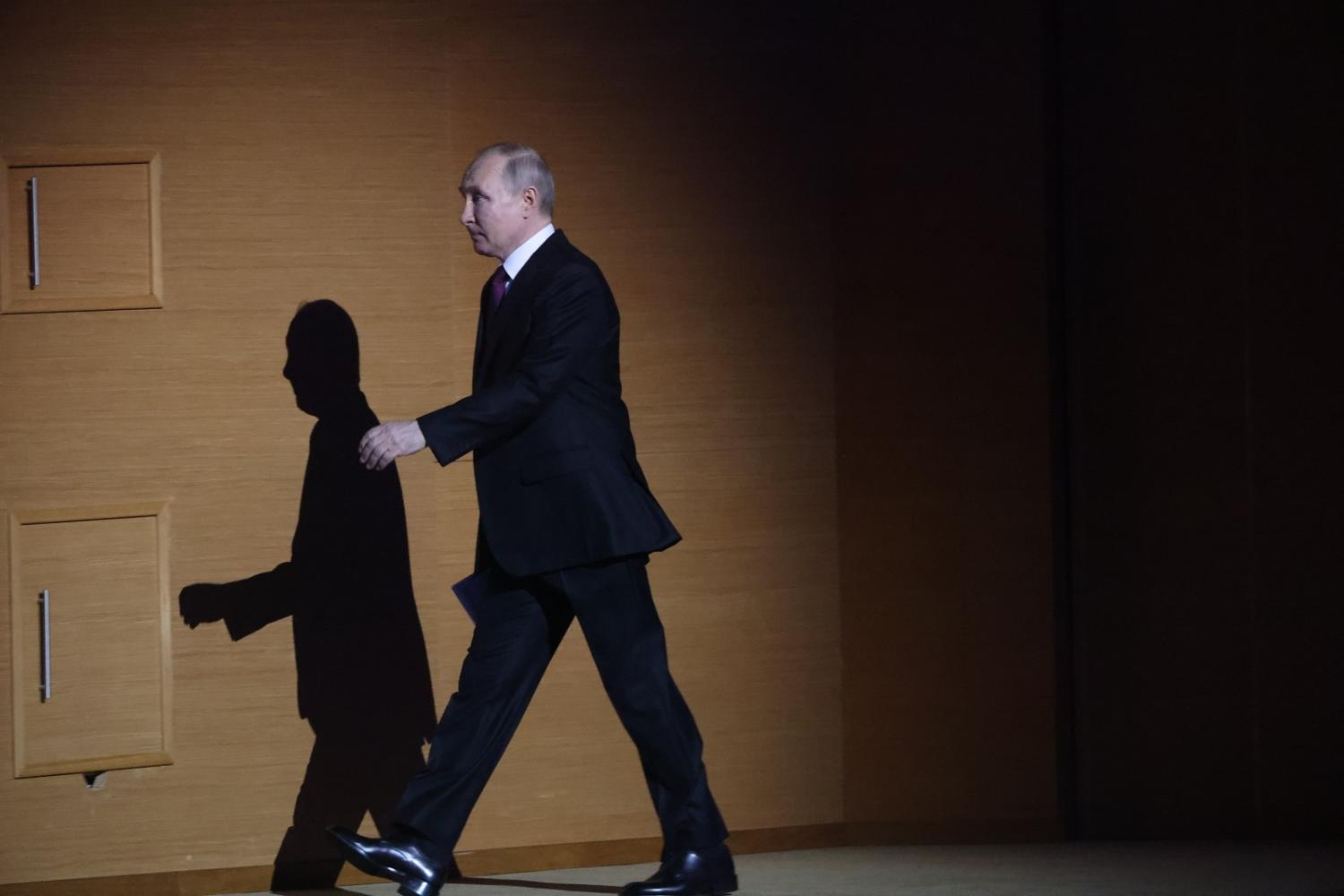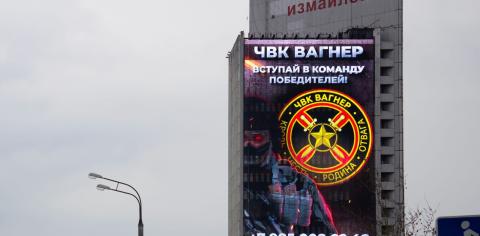Bogged down in a grinding war of attrition in eastern Ukraine, and now facing a counter-offensive by Kyiv, Russia’s folly and miscalculation in invading its neighbour last February seems obvious.
It begs the question of why Vladimir Putin launched his invasion, and why now.
Yet, seen in the context of Putin’s Russia, and Moscow’s relations with Ukraine and the West, the invasion of Ukraine 15 months ago shouldn’t have surprised us.
Putin has long been fixated on controlling Ukraine. He’s tried repeatedly – albeit unsuccessfully – over the past 20 years to bend Ukraine to Russia’s will.
The reasons are many.
Firstly, it’s about identity. Putin doesn’t accept Ukraine is a real state or has a separate national identity, instead seeing it as an integral part of the Russian national patrimony. Many Russians share that view.
His irredentist yearning to bring Ukraine back into the Russian fold is laced with imperial nostalgia and bitter resentment at the loss of Ukraine after the Soviet Union’s break-up in 1991.
Putin also has hard-nosed geopolitical ambitions: he aims to redraw Europe’s post-Cold War security architecture. He wants to resist the further eastward expansion of the North Atlantic Treaty Organisation (NATO), restore Russia’s strategic depth, and reclaim its historical sphere of influence around its western borders. Ukraine is central to this goal.

The Kremlin also fears contagion from a Western-oriented Ukraine: a democratic and prosperous Slavic neighbour would provide an unhelpful example for Russians. Similar concerns underpinned Moscow’s response to the democratic uprising in Belarus after Aleksandr Lukashenko’s rigged re-election in August 2020.
Bear in mind Putin’s two key objectives since coming to power more than 20 years ago: at home, to consolidate the Kremlin’s centralised political authority, after the chaotic 1990s; and internationally, to rebuild and assert Russia’s power, status and influence – both in its neighbourhood and beyond.
Russia’s leaders, mainly drawn from the security services, see the world through a lens of suspicion and insecurity. And the Kremlin ruling elite bitterly resents the West, claiming it took advantage of Russia and ignored its interests after the dissolution of the USSR. The Kremlin has cultivated a siege mentality and retails a narrative of grievance.
This myth of victimhood allows Putin to frame the Ukraine invasion as a war of necessity, not choice: of Russia under assault – military, political, economic and cultural – from a hostile, collective West.
But why did Putin decide to up the ante from late 2021?
Because he judged the time was right and the circumstances favourable to achieve his goals.
Moscow had probably given up on any prospect of working with Kyiv. During the 2019 presidential election campaign, Ukraine’s Volodymyr Zelenskyy had pledged to resolve the standoff with Moscow. But in office, he’d taken a tougher line, resisting any compromise with Moscow.
Meanwhile, the 2015 Minsk diplomatic process on the status of the separatist regions of Donetsk and Luhansk was going nowhere, and unlikely to deliver the enhanced influence in Ukraine that the Kremlin sought. Kyiv, correctly perceiving Minsk as loaded in Moscow’s favour, was unwilling to devolve political authority to the regions – without which Russia refused to return control of Ukraine’s borders to Kyiv. France and Germany, the key external parties involved, were unable to exert effective influence on the process.
Moreover, Zelenskyy’s administration was seen as weak and unpopular, and the Ukrainian public preoccupied with economic difficulties. The Kremlin fretted Russia’s influence in Ukraine was ebbing, especially amid deepening cooperation between Kyiv and the United States and its NATO partners. Indeed, the Kremlin suggested that deepening military ties between Kyiv and the United States and European NATO partners might cross a red line for Moscow.
Putin judged too that external circumstances were propitious.
He saw Europe as weak and divided. Its major states were internally preoccupied, notably Germany managing the power transition from long-time leader Angela Merkel, while post-Brexit UK remained mired in domestic political chaos. Europe was also coping with a renewed Covid wave and managing another influx of migrants (notably from Belarus). Putin calculated, moreover, that Europe’s high dependence on Russian gas gave Moscow leverage as winter approached.
Meanwhile, he saw Washington as focused on its growing rivalry with China, while America’s international standing had been diminished by the chaotic withdrawal from Afghanistan. The Biden administration also seemed preoccupied and weakened at home by partisan politics.
Finally, Putin would have been buoyed by Russia’s growing strategic partnership with China, giving him political and economic cover.
All this must have made Putin pretty confident.
From autumn 2021, Putin engaged in coercive diplomacy. This involved amassing large numbers of forces in menacing offensive formations around Ukraine’s borders, accompanied by bellicose demands. It seemed to be working: Putin certainly got the West’s attention, with the leaders of Germany and France beating a path to Moscow seeking a de-escalation of tensions.
But with hindsight, it’s doubtful Putin was ever serious in pursuing a diplomatic outcome, and was instead resolved anyway on taking military action.
As a calculated risk-taker, Putin must have drawn encouragement from the weak Western reaction to Russia’s illegal annexation of Crimea in 2014. He likely assessed that a distracted and divided United States and Europe were unlikely to do much more than fulminate at what he reckoned would be a quick and decisive Russian military victory in Ukraine.
It is clear now his hubris was fuelled by misplaced confidence in both Russian military prowess and intelligence assessments. In truth, Putin was not alone: many observers (including in the West) thought the Zelenskyy government was weak and would quickly collapse. And that Ukrainian forces would be no match for Russian military might.
Both assumptions proved fatal miscalculations.
But there’s no reason yet to suppose that Vladimir Putin has resiled from his objective to bring Ukraine to heel. It’s possible that major battlefield setbacks, internal elite ructions in Moscow or pressure from China might give him pause – but don’t bet on it.

